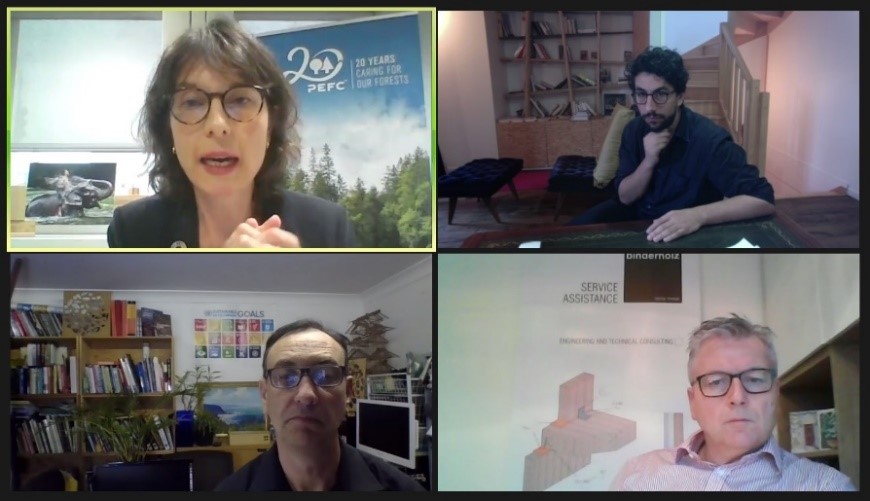PEFC Webinar: Building a better future with certified timber
PEFC Webinar: Building a better future with certified timber
Construction event
Timber as a construction material is on the rise, as architects, engineers and builders around the world recognize its versatility, flexibility and benefits for people and planet.
Our ‘PEFC Webinar: Building a better future with certified timber’, that took place in December, saw three construction experts discussing the merits of timber.
Thanks to mass engineered timber, only the sky is the limit

Our first speaker was Mark Wayne Probert, Head of Sales for the UK and Ireland at Binderholz, a leading manufacturer of mass timber solutions.
Mark Wayne highlighted the importance of managing forests sustainably and the special characteristics of timber as a construction material.
He described how Binderholz pays attention to sourcing PEFC-certified timber and how the company uses 100% of a harvested tree, optimising the use of the raw material and protecting the forest resource.
Moving on to timber benefits, he explained “Timber is not like concrete and steel, which are cold to work with. It is warm and inviting even during construction. Timber is also great to work with, as it is quicker, safer and cheaper than other materials.”
Engineering technologies mean that mass engineered timber, such as Cross Laminated Timber (CLT) or Glulam, provide all the strength and safety required for small and tall buildings.
“The sky is the limit for the use of timber. Let’s build with wood and build for the planet,” he concluded.
Building with wood is a game changer

Our second speaker, Paul Jarquin, is the President of REI Habitat, and a pioneer of wood construction in France. Using local and certified timber is a priority for his company.
“By building with wood, we can reduce a building’s carbon emissions by up to 60%,” he commented.
“This really is a game changer.”
Consumers are also starting to appreciate the benefits of timber.
“We are seeing an increasing demand for wood from consumers in France, particularly from the big cities,” Paul explained.
“Importantly, these consumers not only ask for wood, but also ask about its provenance. They want to know if it’s sustainable, and if it’s local. PEFC certification enables us to respond to their needs.”
Construction with wood – for people and the planet
Our third speaker, Mark Thomson, architect and Director of Eco-Effective Solutions, highlighted the benefits of timber buildings for the environment and the people living and working in them.
“Building with sustainable timber is eco-efficient,” he explained. “This means it creates more value with less environmental impact. Not only is it renewable, recyclable and reusable, but it also absorbs CO2 and has a positive effect on physical and mental health.”
Timber can have a calming effect on people’s stress levels and lower blood pressure. As Mark highlighted, educational and medical environments such as schools and health centres built with timber can improve the learning and healing processes.
At the same time, he emphasized the importance of choosing timber from a sustainable origin.
“It can only be stated that timber is renewable if it comes from a certified source,” he explained. “Unless you know the history of the timber, you may not be using the sustainable material that you think you are.”